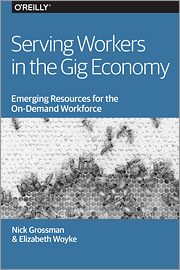A few weeks ago, the Gotham Gal said to me “considering how much time and money you are investing in K-12 education efforts, you should read this book.” The book she recommended is called The Prize by Dale Russakoff and it tells the story of the Newark, NJ public school system reform effort over the past five years.
I’m almost done with the book and I’m very glad she suggested it to me. I’ve long been a fan of the education reform movement, in particular the rise of charter schools, but I’ve also been troubled by the knowledge that charters don’t solve all the problems and some students are beyond the reach of even the best teachers.
The Prize tells two stories at the same time. It tells the story of the “top down” Newark reform effort driven by Cory Booker and Chris Christie and funded with Mark Zuckerberg’s incredibly generous $100mm gift. It also tells the story of real teachers and real students and the challenges they face every day in a few of the charter and district schools in Newark. By telling the story this way, Russakoff gets to the fundamental challenges facing the education reform movement and the entire K-12 system, at least the K-12 system in inner city schools.
In Newark, and in the New York City school system where I’ve spent time the past five years, you have both charters and “district” schools. The charters benefit from flexibility due to having non-union teachers, they benefit from not having the overhead burden of the “district bureaucracy”, they benefit from often having wealthy donors (like us) who cover startup costs and other needs, and they benefit from the self selection that comes from parents who care enough to get their kids into a charter school. The results that the best charter operators have produced with this formula in Newark and New York City is undeniable. They have created some amazing schools that are getting fantastic results. I know many of the leaders of these charter schools and I continue to be impressed by the quality of their work, their schools, and their commitment to the students and we have supported them financially and in other ways.
But not every child gets into a charter and there is a growing number of people, in and out of the education reform movement, who understand that district schools aren’t going away and we need answers for these schools and the children that attend them. And it is also important to understand that, by their nature, charters tend to siphon the best families in a community out of the district school and those that are left in the district schools need more social and remedial support than they are getting and that the district schools have resources to provide.
A few years ago a friend of mine said to me “if you are interested in K-12 inner city education you need to go see this person. The person he sent me to meet with has been providing mental health services to children who are struggling in inner city schools. She explained to me that you can’t teach a student who is in trauma. It doesn’t work. So she has taken on the effort to try to provide mental health resources to the most challenged schools and the most challenged students. That is an example of the “social and remedial support” that district schools need more of.
If there is any lesson that I took away from The Prize it is that we can talk until we are blue in the face about bureaucracies, and unions, and bad teachers, and fraud, and corruption, and the need to reform all of that. And we do. But where the rubber meets the road is the student and its the inner city students who are failing in kindergarten, first grade, and second grade who we need to focus on. Because once they fail at that level, it is so hard to get them back on track and most don’t make it.
I sat next to NYC Schools Chancellor Carmen Farina at Mayor de Blasio’s recent speech on his education efforts. When the Mayor mentioned the big investment they are making in second grade reading performance, Carmen turned to me and said “this is critical. these kids need to read in second grade”. She’s right.
If you are interested in this stuff, as I am, I would strongly recommend reading The Prize. It didn’t tell me anything I didn’t already know. But I helped me think about this stuff and that’s super helpful.
 USV’s very own Nick Grossman has co-authored an ebook for O’Reilly Media called “Serving Workers In The Gig Economy” and you can get the ebook here.
USV’s very own Nick Grossman has co-authored an ebook for O’Reilly Media called “Serving Workers In The Gig Economy” and you can get the ebook here.